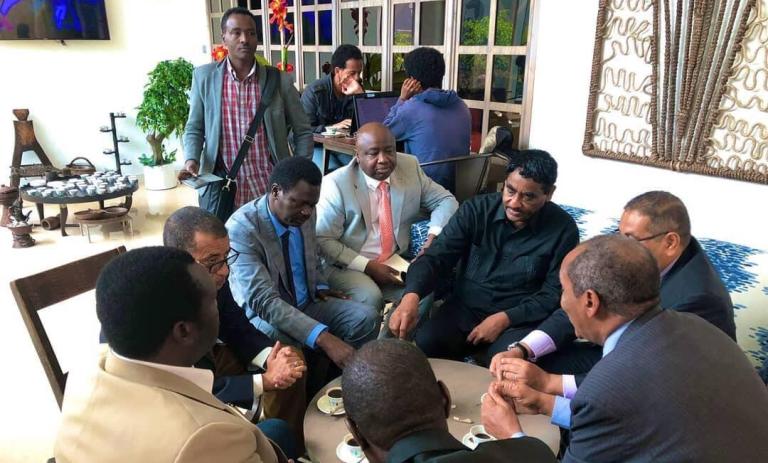FFC groups continue talks on Sudan’s transition amid conflicting reports

July 23, 2019 (KHARTOUM) – Conflicting reports emerged from Addis Ababa on Tuesday about understandings reached between the political and military factions of the opposition “Forces for Freedom and Change (FFC) on a possible agreement about the representation of the armed groups in the structures of the transitional period.
The FFC discussions which are initially held to agree to the structures of the opposition umbrella ahead of the transitional period are now mainly focused on the representation of the armed groups in the transitional authorities, particularly the five seats of the FFC in the collegial presidency and the technocrat government.
Some media reported that the opposition agreed to allocate two of its five seats at the Sovereign Council to the armed groups.
But opposition sources from Addis Ababa told Sudan Tribune that there was an agreement that the appointment of the five members to the Sovereign Council will take into account the regions but there is no deal on a quota for any group.
Also, an agreement has been made to give the SRF a preference when it comes to forming the governments of the war-affected states.
Mohamed Nagy Alassam, who represents the Sudanese Professionals Association in the meeting on Tuesday evening posted a tweet denying the allocation of two seats in the Sovereign Council to the armed groups.
“We do not discuss the power-sharing or quotas, and there is no room for that because it contradicts our commitment to the Sudanese people and because we do not have the power to distribute it (…). The people want competencies to implement the Declaration for Freedom and Change only,” said the de facto leader of the group that led the protest movement against al-Bashir’s regime.
in the same trend, the FFC issued a statement on Monday evening confirming that consultations are part of the preparations for a comprehensive peace process during the transitional period, and to include the requirements of peace and stability in the constitutional declaration.
“With this perception, these consultations are not for quotas or the power-sharing, (…) of positions we pledged to the people that they are for patriotic competencies”.
One of the reasons that led to the deadlock of consultations that some armed groups propose to postpone the formation of the transitional government until the signing of a peace agreement. Instead, they propose to form a caretaker government until the signing of peace arrangements with the armed groups in Darfur, Blue Nile, South Kordofan.
However, the idea has been rejected, as others want to accelerate the formation of a government in order to conclude peace talks during the first six months.
The Sudanese Revolutionary Front (SRF) has proposed, in a position paper released on Tuesday, to sign cessation-of-hostilities agreements with armed groups and to allow them to act as political organizations throughout Sudan.
The paper, also, proposed an agenda for the peace talks including the security arrangements, issues of the marginalized and vulnerable groups, identity, equal citizenship, system of governance and the relationship between the centre and the regions, landownership and Hawakir (land) issues, wealth and power-sharing, fair and sustainable development, voluntary return of displaced persons and refugees, reconstruction of war-affected areas, compensation and transitional Justice.
The three armed groups also pointed to the need to include the other armed groups in the peace talks.
(ST)
